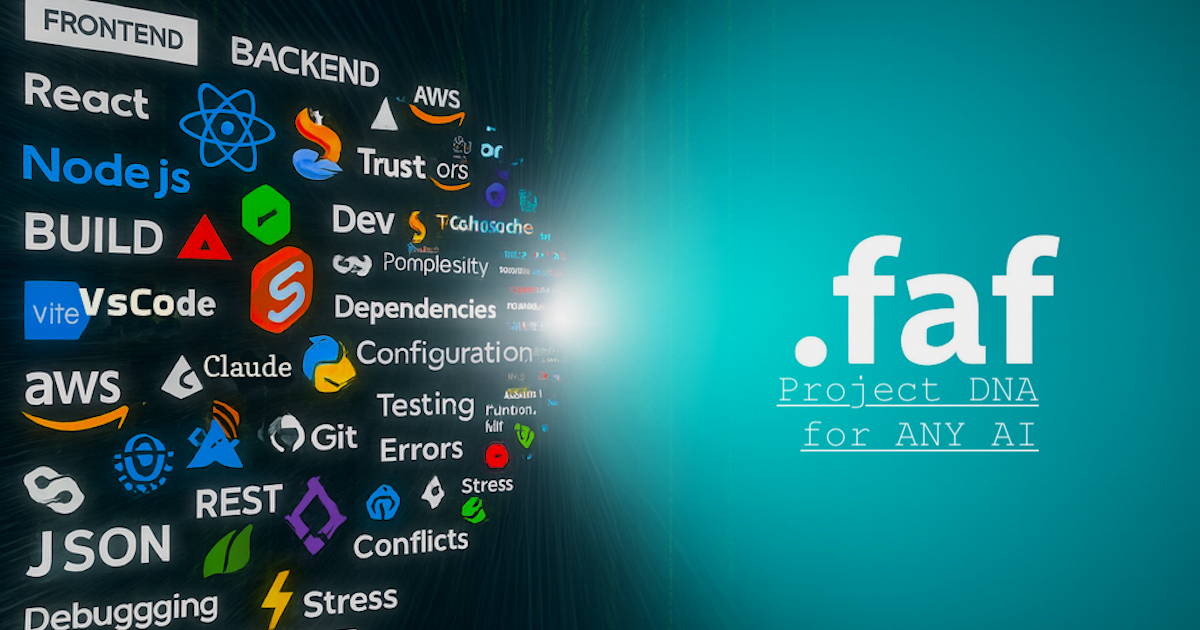Why FAF Exists
The context problem that every developer faces

AI Tools Don't Share Context
Claude doesn't know what you told Gemini. Cursor doesn't know your ChatGPT history. Every tool starts from zero.
You Re-Explain Everything
Stack, conventions, architecture, rules. Every session. Every tool. The same context, typed again and again.
Context Drift is Silent
CLAUDE.md says one thing. Your team's mental model says another. No single source of truth.
The Solution
One format. Every AI. Authored once, works everywhere.
Before
29%
context understood
After .faf
99%
context understood
Setup time: 20+ minutes → under 3 seconds
"package.json wasn't built for this, .faf was."
"package.json gives me a list of dependencies, .faf shows me how to use them."
— .faf Inventor + Claude Code
